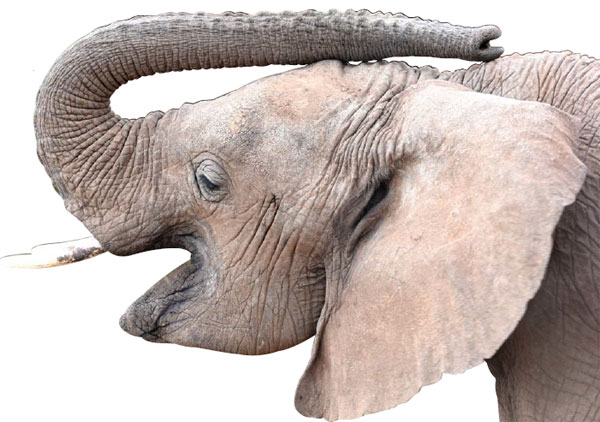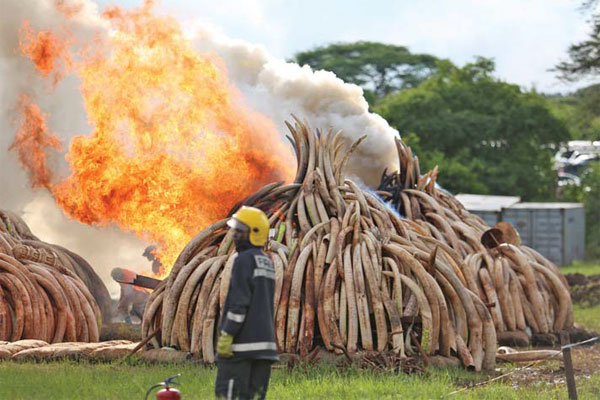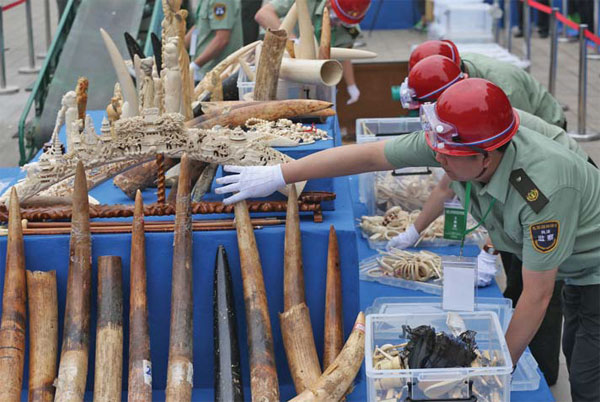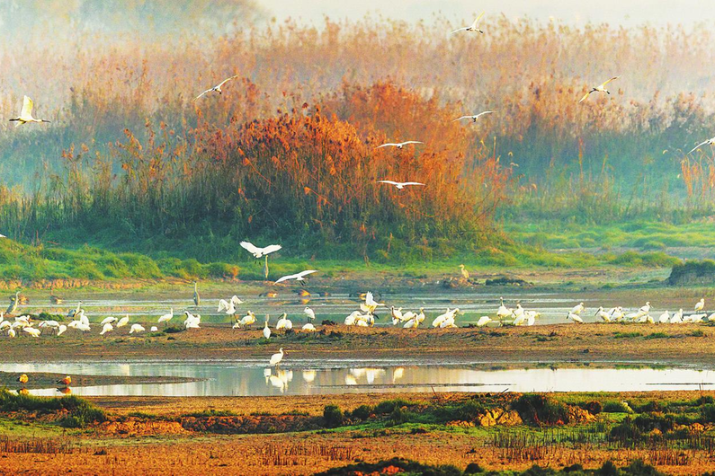Kenya welcomes China's ban

China's plan to ban the processing and sale of ivory products by end of next year will be a huge boost for the protection of elephant populations in Africa, the Kenyan government says.
Kenya's Cabinet Secretary for Environment, Water and Natural Resources Judi Wakhungu told China Daily Africa the move is significant due to China's huge domestic market for ivory.
"We are thrilled by the decision. It will be a huge boost in efforts by countries of the world, including Kenya, to protect elephant populations against poaching," Professor Wakhungu said in Nairobi.
On December 30, the Chinese government announced that it would eliminate the processing and sale of ivory by the end of 2017.
| 105 metric tons of ivory is set on fire after Kenyan President Uhuru Kenyatta demanded a total ban on the trade of tusks and horns in April, 2016. Hou Liqiang / China Daily |
| China destroys elephant ivory and ornaments seized over the years. Wang Jing / For China Daily |
China will shut down domestic ivory carving workshops and factories by April.
It will phase out registered traders and processors by the end of 2017. A notice issued by the State Council said the move would "strengthen the protection of elephants and crack down on the illegal ivory trade."
The council urged law enforcement officials to take a tougher stance on the sale, transport and smuggling of ivory.
According to Professor Wakhungu, Kenya is now hoping other nations with huge markets for ivory will emulate China, which she noted had shown leadership in safeguarding the endangered elephant population.
"We hope the historic decision piles pressure on other nations like Japan and Thailand which host huge domestic markets for ivory to adopt similar bans," said Professor Wakhungu.
Conservationists in Kenya have also welcomed the decision, saying it will boost efforts to save African elephants from poaching.
"I was pleased to learn that China's action would be a blow to the ivory trade and I hope that other nations will follow China's example," Kenya Wildlife Service (KWS) chairman Richard Leakey was quoted as saying in a recent media report by Xinhua news agency.
"The ban is a positive gesture that reinforces the urgency of saving the rest of the elephant herds."
Kenya and China have recently been cooperating on matters relating to forestry and ecological conservation.
In April 2015, officials of the State Forestry Administration of the People's Republic of China and those from Kenya's Ministry of Environment, Water and Natural Resources met to draw an implementation plan for possible areas of bilateral cooperation.
The Cabinet Secretary for Environment, Water and Natural Resources led the Kenyan delegation while Mr Chen Fengxue, vice-minister for the State Forestry Administration, headed the Chinese team in bilateral talks held in Nairobi.
The two sides agreed on plans for three broad areas relating to climate change, supporting local livelihood and development of the bamboo industry. This will eventually be extended to other areas of cooperation.
The plans are anchored in a memorandum of understanding signed in 2014 between Kenya's President Uhuru Kenyatta and Chinese Premier Li Keqiang to strengthen bilateral cooperation in areas relating to forestry and ecological conservation.
The bilateral cooperation includes wildlife conservation, which falls under China's forestry administration.
Prof Wakhungu said Kenya has benefited immensely from the cooperation, which has seen the Chinese government support Kenya in its wildlife conservation efforts by providing equipment to the Kenya Wildlife Service.
"This has been a big boost and with the equipment, our Kenya Wildlife Service personnel are better equipped to deal with the challenges of elephant poaching," she said.
The donated equipment included 18 four-wheel drive, double-cabin vehicles worth KShs70 million ($675,016), 100 tents, 100 mountain jackets, night vision equipment and small binoculars from the Chinese government for use by the KWS to strengthen efforts in conserving Kenya's wildlife.
In 2008, China was given permission by the Convention on International Trade in Endangered Species of Wild Fauna and Flora (CITES), the international body that regulates the trade of wildlife, to buy ivory legally from several southern African countries. The move, which was supposed to reduce elephant poaching, was instead followed by a boom.
Analysts have, in the past, raised concerns over legal ivory markets which make it difficult to differentiate between legal and illegal ivory trafficking.
Kenya, led by President Uhuru Kenyatta, last August spearheaded demands for a total ban on trade in ivory to end the "murderous" trafficking and prevent the extinction of elephants in the wild.
President Kenyatta's August 2013 visit to China was seen as a step toward stronger ties between the two countries.
The Convention on the International Trade in Endangered Species (CITES), gathered in Johannesburg last year and agreed for the first time in its history that national ivory markets should be closed altogether rather than regulated.
Poaching has caused a huge decline in Africa's savannah elephants, with almost a third wiped out between 2007 and 2014, according to a recent survey funded by Microsoft founder Paul Allen.
For China Daily

(China Daily Africa Weekly 01/20/2017 page21)
Today's Top News
- Jimmy Lai found guilty of violating national security law
- Hong Kong court opens session to deliver verdict on Jimmy Lai's case
- China's economy posts steady growth in Nov
- Death toll rises to 16 in Sydney's Bondi Beach shooting
- Firm stance on opening-up wins praise
- World looks to new engines for growth in 2026
































